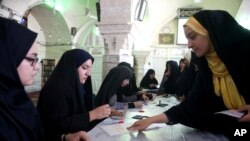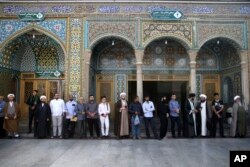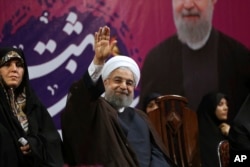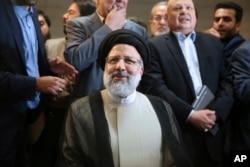Iran is counting ballots Saturday following a massive voter turnout for the presidential election.
The incumbent, President Hassan Rouhani is leading in the early returns, according to officials.
Preliminary vote tallies have him ahead with 14.6 million votes, out of 25.1 million counted so far, The Associated Press reported.
His nearest challenger is hard-line cleric Ebrahim Raisi, with 10.1 million votes.
Voting Friday, originally scheduled to end at 6 p.m., was extended to midnight to accommodate a crush of voters, with many standing in line for hours to cast their votes.
More than 60,000 polling stations operated around the country to serve Iran’s 56 million eligible voters. Rouhani faced criticism from conservatives who have blasted his handling of Iran’s economy and the nuclear deal he signed with the West.
Rouhani banked his political future on Iran’s landmark nuclear deal with the United States and other world powers, which led to the loosening of economic sanctions on Tehran. The incumbent president’s main challenger, Raisi, has criticized the deal because it leaves in place sanctions on Iran’s banking and financial services.
Political analysts say Rouhani is the favored candidate. He also has history on his side: All incumbent presidents have won re-election since 1981.
Early vote count results indicate he has a strong lead.
If Rouhani fails to win a majority of the vote against the other three candidates, a runoff vote between the top two finishers would be held next week.
Conservative hard-liner Raisi has run on a largely economic platform, promising to create millions of jobs and fix Iran’s 12.7 percent unemployment rate. He is seen by many as a favorite of Iran’s supreme leader, Ayatollah Ali Khamenei, although the ayatollah has not endorsed him.
Iran’s system of government, implemented after the 1979 Islamic Revolution, requires a religious panel’s approval for any presidential candidates. While the supreme leader has ultimate say over Iran’s state policies, the president still holds considerable influence in government.
Pro-reform candidate Mostafa Hashemitaba, who previously ran for president in 2001, and former culture minister Mostafa Mirsalim also were on the ballot Friday.








